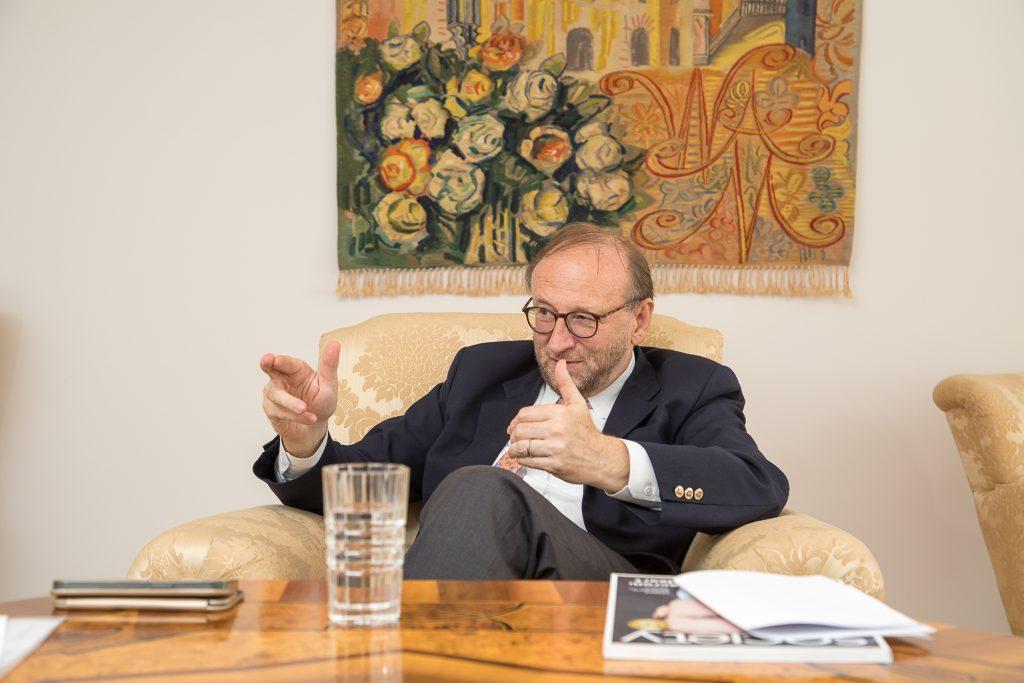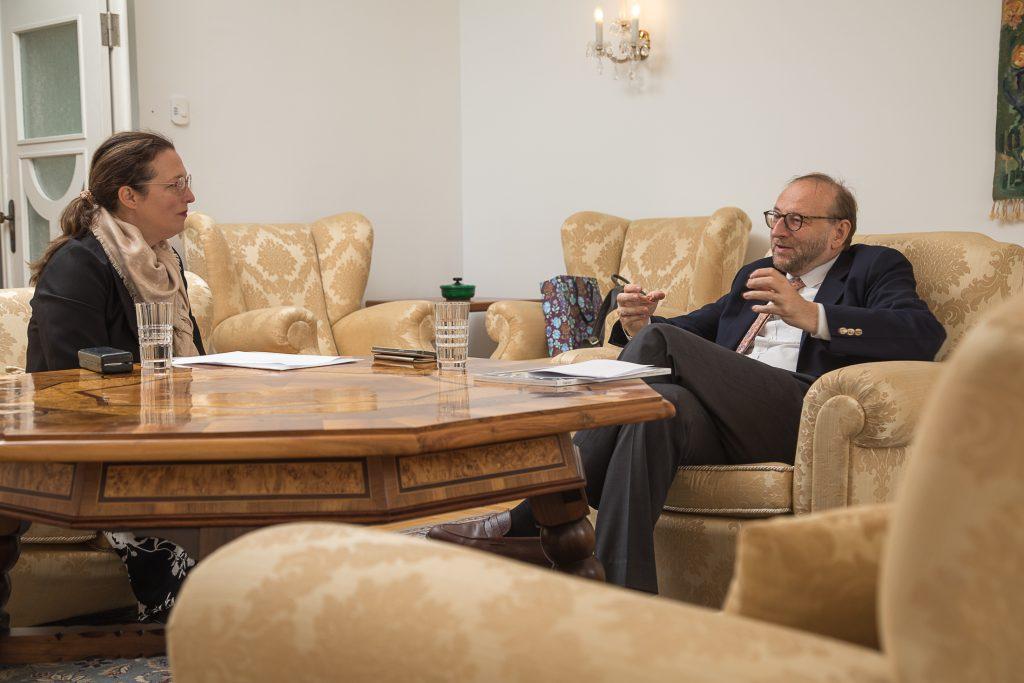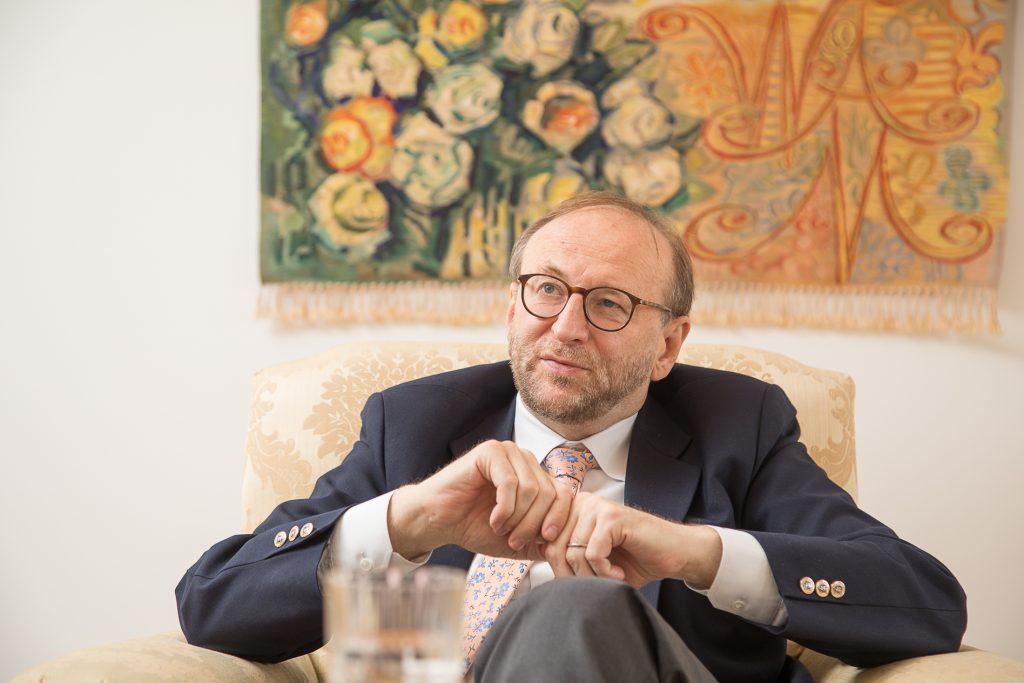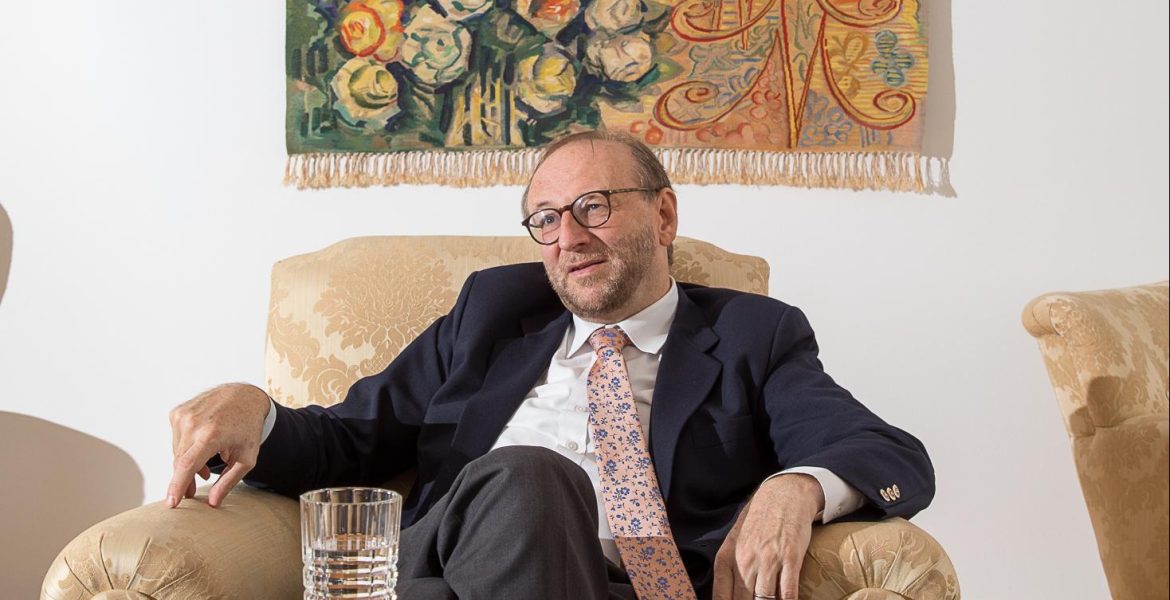In a very honest conversation with the Ambassador of the Czech Republic, H.E. Jiří Šitler, he speaks about the shared history of his country and Austria and how the war in Ukraine drastically impacted the programme for the Presidency of the Council of the European Union.
Interview by Tanja Tauchhammer
You have been accredited as Ambassador of the Czech Republic to Austria since September 15, 2022. As neighbours with a shared history, where do you see the biggest overlap?
A joint history can be both – an advantage but also a burden, as it is not always based solely on friendship but also on conflicts and we had our share of historical issues.
Some years ago, the “Permanent conference of Czech and Austrian historians” published a joint history book titled “Neighbours” (Nachbarn/Sousedé), which is nowadays used as a textbook in Czech and Austrian schools. It took years to write and finding a common ground and shared historical views wasn’t always easy but the authors did succeed. In a conversation with the historians involved, I was told that the section on the Second World War was quite complicated, as both sides like to see themselves mostly as victims. The Czech side partially sees Austria as the perpetrator and Austrians see Czechs as offenders when it comes to the expulsion of the German speaking population after the war. Nevertheless, they found a common basis and nowadays, the issue doesn’t play a role in political relations anymore. If we talk about our shared history today, we usually stress the positive aspects. Maybe that has to do with a generational change in politics on both sides. What definitely paid off is the work of the before-mentioned historians, which both sides supported politically.
Furthermore, we share a lot of personalities who were for example born in what is now the Czech Republic but worked in Vienna or vice versa, like Mozart, he was and remains very popular in our country and some of his works even premiered in Prague, so to us, he does not feel like a foreigner.
Prague and Vienna resemble each other at times, but the cities also differ a lot. How did this develop historically?
I think that the biggest difference between Prague and Vienna and also Budapest is that, in the mid-19th century, Budapest and Vienna were “more important” than Prague and they had more money, which resulted in more extensive construction. This was not always positive because in the mid-19th century, there was no notion of protecting old monuments and buildings, so they levelled the medieval parts and built new, wide boulevards and big buildings, inspired by Paris. This results in Vienna and Budapest being more like mid-19th century cities whereas Prague started to flourish one or two generations later, when there was already some kind of awareness regarding the protection of historic monuments. Also, there was opposition, for example the still existing “Club for Old Prague” that successfully campaigned against the destruction. What we have in Prague nowadays is more like a gothic and baroque city with some Art nouveau buildings while in Budapest and Vienna, this is the other way around.





As you already stated, relations between Austria and the Czech Republic are very good. But in which areas would you like to see an improvement of cooperation?
In the Czech Republic, we have a traditional meeting with ministers before leaving for a new post, and there, I was asked by one minister what my top priority as Czech Ambassador to Austria was going to be. My answer was simple: “Not to make things worse”. At the moment, our relations are better than ever, so the most important task will be to uphold this trend. Naturally, we view some things differently but I am aware that these views will not change anyways. For example when it comes to nuclear energy: I am sure I cannot convince Austria to support it, so what we can and have to do is to discuss this topic respectfully, on an expert level and without any emotional outbursts, and that is what we are doing.
We are also different in the sense that the Czech Republic is a NATO member and Austria a neutral country. In this regard, Austria and the Czech Republic naturally have not been cooperating so closely in security and defence within the EU, because for us, our NATO partners have been more relevant.
Furthermore, we made different experiences with Russia. In 1968 we witnessed an invasion. In 2014, we had the case of an explosion of an ammunition depot, which, to the shock of the Czech general public, was revealed to have been a Russian military act on our territory in 2021. As a result, we expelled most of the Russian diplomats. Currently, they still have a mission but with only 32 people, as compared to around 130 people a few years ago. Austria had a different approach towards Russia, but I think after February 24, Austria is more aware of the fact that Russia does not behave like a “normal” country that respects international law. You cannot deal with Russia as if it were a predictable partner and you cannot be neutral when it comes to violations of international law.
The Czech Republic recently holds the Presidency of the Council of the European Union – what are the key points of the programme and how does/did the war in Ukraine impact the agenda?
It affects our presidency radically. We had to rework our programme altogether, as dealing with the many consequences of Russia’s invasion of Ukraine became our prime concern. Generally, we have five priorities: number one, as already mentioned, is dealing with the consequences of the war, the second one is the handling of the energy crisis, number three, the strengthening of European defence capabilities which also include cyber security, number four, strengthening of the European economy – not only in terms of the war but also regarding the pandemic that showed us how dependent we were on imports of medical equipment, chips and raw materials. Last but not least, we want to work on the resilience of our democratic institutions. Our motto is a reference to an old speech by Václav Havel delivered under the title “Europe as a task” – Europe is not something that is just there but a construct that we constantly need to work on.
Concerning the war in Ukraine, this time, the EU maintained unity and continues to do so. That is, of course, very positive and something that I think Putin did not anticipate. At the same time, if we didn’t show unity, we would have the same situation again five years from now; Russia would strengthen its military and then attack again. What they want is being feared, but I think that now, many people stopped fearing them.
How long will this conflict last, in your opinion?
I am afraid that it will last very long and I think that what Putin is counting on is that some European countries will want to “go back to normal”. But this is something that I cannot see happening. So my answer is that it will last decades. February of this year brought a radical change – it was the beginning of a new era and there is no going back to normal in our lifetime.
Photos: SOCIETY/Pobaschnig

